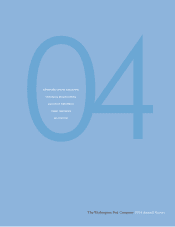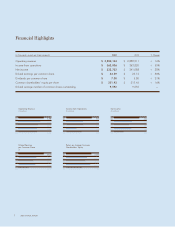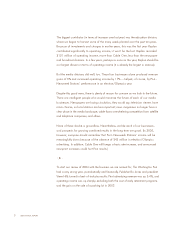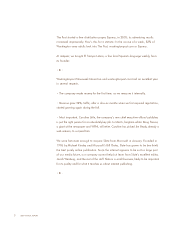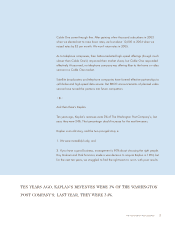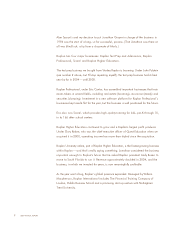Washington Post 2004 Annual Report Download - page 7
Download and view the complete annual report
Please find page 7 of the 2004 Washington Post annual report below. You can navigate through the pages in the report by either clicking on the pages listed below, or by using the keyword search tool below to find specific information within the annual report.
2004 ANNUAL REPORT
5
The Post started a free-distribution paper, Express, in 2003; its advertising results
increased impressively. How’s this for a statistic: In the course of a week, 82% of
Washington-area adults look into The Post, washingtonpost.com or Express.
At midyear, we bought El Tiempo Latino, a fine local Spanish-language weekly, from
its founder.
Washingtonpost.Newsweek Interactive and washingtonpost.com had an excellent year
in several respects.
The company made money for the first time, as we measure it internally.
Revenue grew 32%; traffic, after a slow six months when we first required registration,
started growing again during the fall.
Most important, Caroline Little, the company’s new chief executive officer/publisher,
is just the right person for an absolutely key job. In March, longtime editor Doug Feaver,
a giant at the newspaper and WPNI, will retire. Caroline has picked Jim Brady, already a
web veteran, to succeed him.
We were fortunate enough to acquire Slate from Microsoft in January. Founded in
1996 by Michael Kinsley and Microsoft’s Bill Gates, Slate has grown to be (we think)
the best purely online publication. Since the internet appears to be such a large part
of our media future, our company cannot help but learn from Slate’s excellent editor,
Jacob Weisberg, and the rest of the staff. Slate is a small business, likely to be important
for its quality and for what it teaches us about internet publishing.

